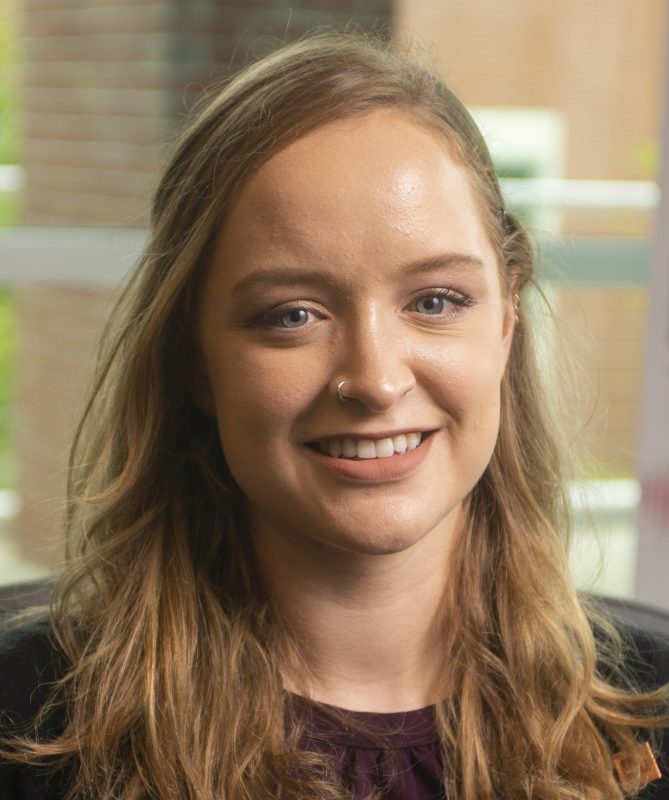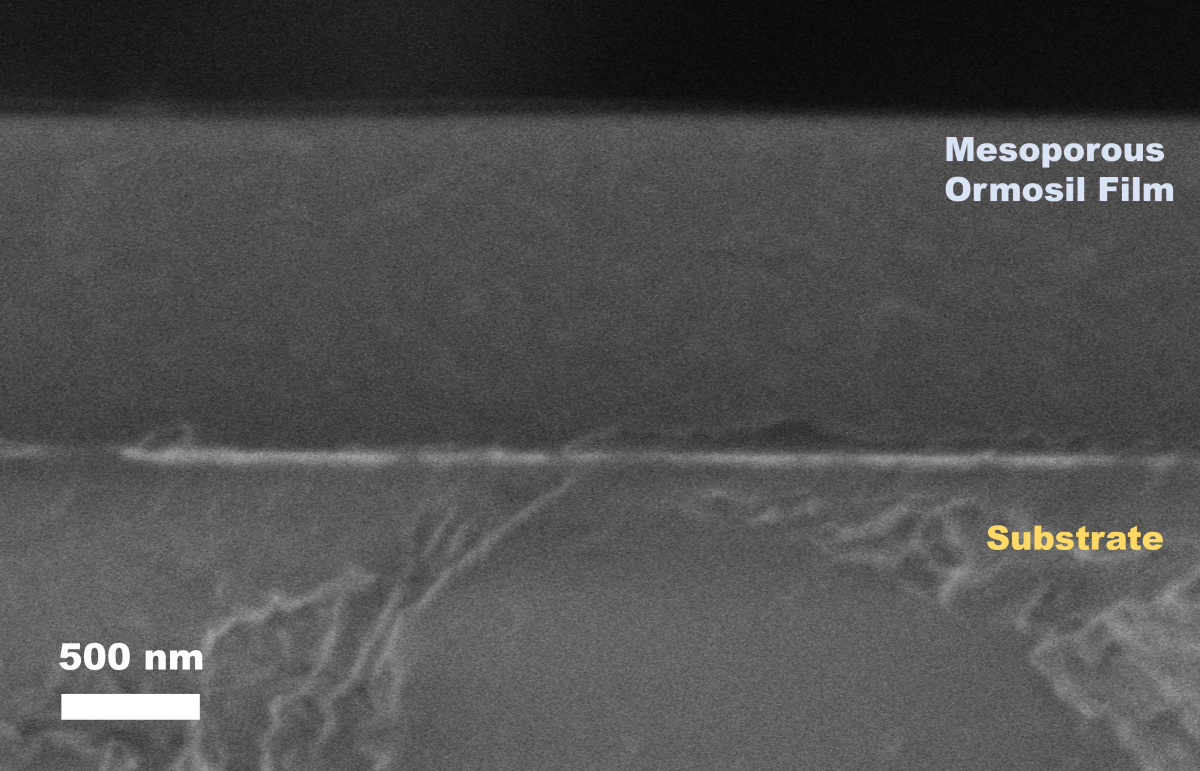Tell me a little about yourself!
I’m Lydia Skolrood, a second-year Ph.D. student under the supervision of Dr. Qingshan Wei in the Department of Chemical and Biomolecular Engineering here at NC State. I’m from Gainesville, GA, and I received my Bachelor’s degree in Chemistry from the University of North Georgia in 2018. I then participated in research internships at Oak Ridge National Laboratory before becoming part of the Wolfpack. I’m a former member of the USA Canoe/Kayak National Team, and I still like to stay active and connect with nature at the same time with kayaking, rock climbing, and other outdoor activities. I usually spend my free time cooking, gaming, or reading, and I am almost always listening to music. After I graduate, I plan to pursue a post-doctoral research position toward a long-term career in research and science leadership.

I use the Raman Confocal Microscope to analyze the chemical composition of our sensing materials and benchmark a portable Raman device that we are developing in our lab. I also use the Verios Scanning Electron Microscope and the Talos Transmission Electron Microscope to view our sensing materials’ thickness, pore structure, and elemental composition. I find it fun and engaging to learn new techniques, and having access to such powerful instruments helps me make informed decisions in my research.
What have you been researching and how is it impacting the community?
In my research, I develop tools for point-of-care sensing and diagnostics in plant science applications, studying new ways to sense plant diseases using smartphones as portable instruments. Interestingly, plants release molecules into the air from their stems and leaves that act as non-invasive biomarkers for plant diseases, even before visible symptoms develop. I design sensors that detect the molecular “fingerprint” of those volatile organic compounds (VOCs) released by diseased plants using surface- enhanced Raman spectroscopy (SERS) techniques. To do that, I make specialized materials that can capture VOCs from the headspace around the plant and pre-concentrate them onto signal-enhancing plasmonic substrates for SERS detection with a smartphone-based Raman platform that we are building in our lab. The characterization tools I use at AIF help us understand which material properties make our sensors more sensitive and selective toward relevant VOC disease biomarkers.
I want my research to benefit the community on a local, national, and even global scale by improving our strategies for diagnosing, mapping, and reporting cases of plant diseases through national alerting systems such as USABlight.org, operated by NC State University.
Overall, my research is about building affordable and convenient point-of-care diagnostics that will lead to better disease treatment and prevention and reduce crop loss and its impact on global food security.

What have you learned from your experience at AIF?
AIF helps me answer important questions in my research and gain hands-on experience with advanced instruments and tools that would not be available to me without the facility. I also learned the types of questions that AIF can help answer in my research, which in turn has helped improve my research skills by asking more meaningful questions. The learning experience is unique because there is no other equivalent to sitting down with expert staff and discussing the fundamentals of a characterization technique while using it to analyze your own samples.
Best thing about AIF in 5 words or less?
Advanced facilities with friendly experts
Is there a staff member at AIF that has helped you?
Yes, I am very grateful for the help and support I have received from several members who are friendly and resourceful, including Fred Stevie, Elaine Zhou, Chuck Mooney, Chris Winkler, Roberto Garcia, Anna Lumpkin, and several others. The environment at AIF is positive and collaborative, and I appreciate everyone who has stepped in to help me with even the most minor questions I have.